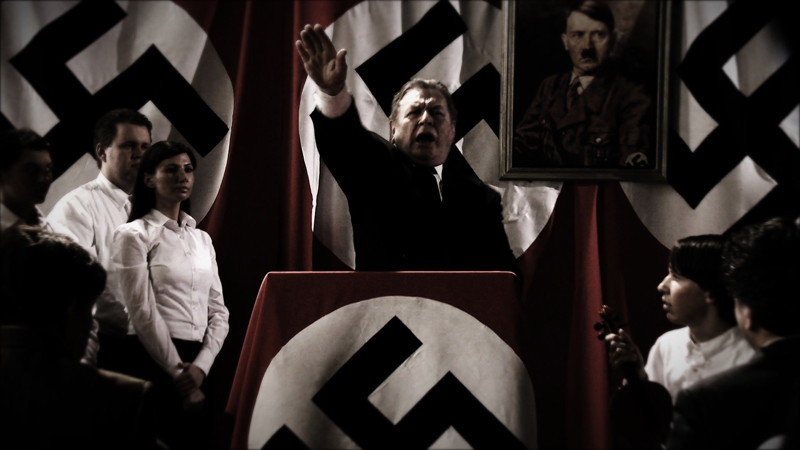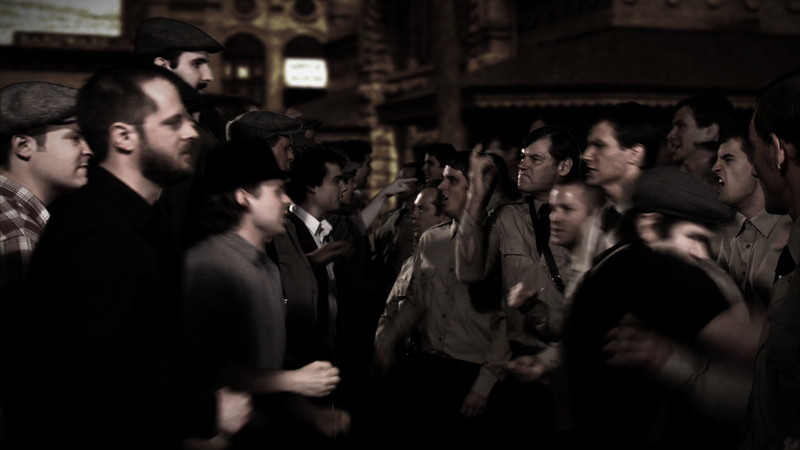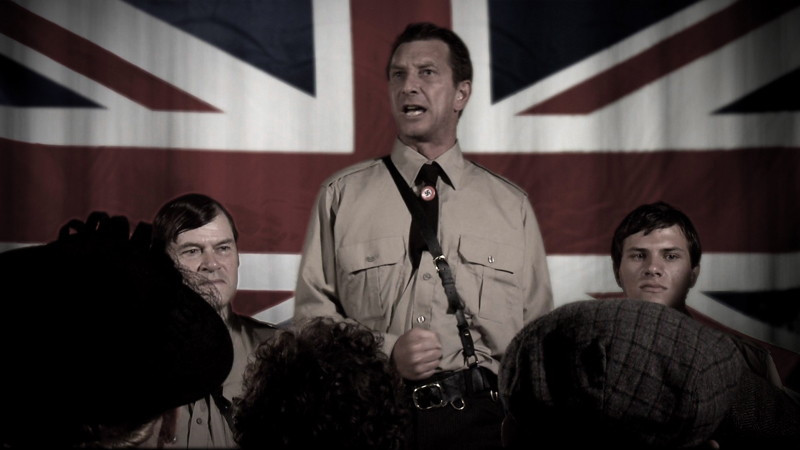Documentary explores prewar anti-Semitism in Manitoba
Winnipeg filmmaker and director Andrew Wall’s documentary The Paper Nazis investigates the fascist skeletons in Winnipeg’s closet and exposes the role that Winnipeg newspapers played in perpetuating anti-Semitic propaganda prior to the Second World War.
Wall first became interested in exploring Winnipeg’s socialist history when he heard a rumour that residents of Victoria Beach once held extreme anti-Semitic attitudes.
His investigation into Winnipeg’s sordid fascist and Nazi history took off from there, and he studied old newspaper archives and spoke to academics and historians to find out more.
But he ran into some difficulty in trying to investigate Winnipeg’s dark chapter in history.
“A lot of the information was destroyed, disappeared and a lot of people are dreadfully embarrassed to talk about it,” Wall said.
Since a large number of Germans and German-speakers had come to Western Canada, and to Winnipeg in particular during the 1930s, many fascist leaders were attracted to these areas.
One such leader was William Whittaker, who started the Canadian Nationalist Party in Winnipeg and the propaganda-spreading newspaper The Canadian Nationalist.
Wall said that one of the biggest struggles he encountered while making the film was trying to understand the mindset of Winnipeg at the time.
“I can never imagine a time when the Jewish community wasn’t a vibrant part of Winnipeg.”
But he added that the desperation people were feeling because of the Great Depression made them search for answers, and unfortunately sometimes those answers were found in persuasive demagogues like Whittaker.
The Paper Nazis also looks at the pro-Nazi newspaper Deutsche Zeitung für Canada, started by Dr. Heinrich Seelheim and journalist Bernard Bott, which by today’s standards would be considered pure propaganda.
Seelheim lead Wall back to Victoria Beach, where anti-Semitic articles had been published and fascist attitudes were common.
Wall tells this story through History Channel-esque re-enactments and newspaper clippings combined with interviews.
One of the most striking things about the interviews in Paper Nazis is that although the academics are obviously willing to talk about Winnipeg and Canada’s role in Nazi and fascist movements, some still seem somewhat reluctant to fully acknowledge that Canada was not always as tolerant and accepting as it’s known as today.
Wall hopes that the documentary prompts conversation and opens dialogue about Winnipeg’s historical atrocities.
While making the film, he found that many people were still trying to rationalize anti-Semitic attitudes and that some people, mostly in the older generation, still hold those attitudes.
Wall decided not to put a gentleman who held anti-Semitic views on camera for his film, but said that speaking to him was bizarre.
“(Some people) don’t get it,” said the director. “I think that’s also part of the reason why the story was never shared, but it’s important. People were victimized and you can’t just shove that under the rug.”
Wall plans to make another film telling the story from a faith-based angle and exploring the Mennonite perspective in Winnipeg’s fascist history.
The Paper Nazis is available now to MTS subscribers on MTS Winnipeg on Demand. For more information, visit www.farpointfilms.com.
Published in Volume 65, Number 20 of The Uniter (February 24, 2011)









